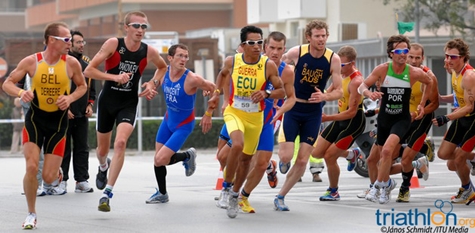 |
Physiological, Cognitive and Psychological Benefits of Yoga,by Christina Geithner |
|
Yoga is a Great Form of Exercise and Mind-body Practice that has Physical, Mental and Emotional Benefits
Yoga is a great form of exercise and a mind-body practice that can have physical, mental and emotional or psychological benefits, even spiritual benefits. Yoga also is an effective way to develop greater self-awareness, acceptance, and the ability to be present in the moment. Yoga can also play a key role in stress reduction (see Yoga: An Antidote to Stress) and improving athletic performance (see Yoga Helps Athletic Performance).
Yoga is a form of exercise that can be (i) started at any age, (ii) performed by healthy individuals, individuals with disease, and athletes and (iii) done for a lifetime.
Yoga can be one of your strategies for aging successfully and maintaining strength, flexibility, balance, and function – fitness components and capacities that are commonly compromised as you add birthdays.
The journey of yoga is an adventure to be enjoyed and which offers much to be gained, whatever the traveler happens to be seeking.
Physiological, Cognitive and Psychological Benefits of Yoga
Here is a list of the physiological, cognitive and psychological benefits of Yoga:
PHYSIOLOGICAL and PHYSICAL BENEFITS
- Reduced sympathetic dominance/increased parasympathetic activation
- Reduced blood pressure
- Reduced resting heart rate
- Reduced cholesterol
- Reduced blood glucose levels
- Improved lipid profile
- Decrease in inflammatory markers
- Improved endothelial function
- Decreased body weight
- Reduced waist-hip ratio
- Increased strength
- Increased core stability
- Improved balance
- Improved lung function
- Improved breath control
- Improved immune system function
- Reduced muscle tension
- Reduction in chronic pain, including lower back pain
COGNITIVE BENEFITS
- Improved concentration
- Sharper focus
- Increased mental clarity
- Increased ability to be present
PSYCHOLOGICAL (mental health, emotional) BENEFITS
- Reduced sleep and sleep disturbance
- Reduced anxiety and negative affect
- Reduced depression
- Increased feelings of well-being
- Positive shifts in locus of control
- Improved coping
Adopting a Yoga Practice
Considerations in adopting a yoga practice include the style of yoga; the instructor’s credentials, experience, and style; your experience and level of ability, preferred setting, exercise personality, schedule, and your goals or desired outcomes.
Yoga comes in many styles, from more energetic and aggressive forms such as Ashtanga and Power yoga to more meditative forms or forms focusing more on proper alignment and held poses such as Hatha yoga and Iyengar style yoga. See Yoga Journal Style Guide and Yoga Journal Basics.
The American College of Sports Medicine offers a free downloadable pdf file on Selecting and Effectively Using a Yoga Class (Geithner and Jens, 2009), that provides guidelines and considerations that are helpful if you are just beginning a yoga practice (i.e., Selecting a Class, Safety, Equipment and Clothing) or if you are searching for a class that better meets your needs (Selecting a Class, Other Considerations).
Yoga can be practiced in the comfort of your home with a DVD or VHS tape, in a private lesson with a yoga instructor, or in a group in a yoga class, training, or conference setting. It can be practiced for 5 minutes to an hour or more per day, depending on your schedule and your choice of practice (home vs. class, breathing and meditation, or a complete practice).
You might consider your exercise personality and what might suit you best and motivate you the most. If you are a lone exerciser and don’t need the motivation of others to maintain an exercise routine, then a home practice might be a good fit for you. If you are more of a social exerciser and/or one who needs the accountability of a scheduled class that you invest money in, then a yoga class might be a better fit. Yoga classes are offered morning, noon, and/or night, depending on your location, and you can choose the class time or to engage in a home practice that best suits your energy level cycles or biorhythms and schedule.
Christina A. Geithner, Ph.D., FACSM, ACSM H/FS is a Professor in the Department of Human Physiology at Gonzaga University. She is a Fellow of the American College of Sports Medicine (ACSM), a certified ACSM Health/Fitness Instructor®, and a Registered Yoga Teacher (RYT-200). Tina was a member of the U.S. Diving, Inc. Talent Identification Committee (1991-2004) and has been involved in data collection and analysis relating to talent identification and profiling of elite athletes in women's ice hockey at the University of Alberta since 1999 with colleague Michael Bracko, Director, Institute for Hockey Research. She has designed and facilitated team building and leadership courses for graduate students in business, accounting, and organizational leadership; and has designed and facilitated team building and strategic planning programs for corporate and educational organizations. Tina has a B.S. in Health, Physical Education and Recreation from West Chester State College, specializing in Recreational Outdoor Pursuits Education; an M.A. in Physical Education from the University of Maryland; and a Ph.D. in Kinesiology from the University of Texas at Austin. Email Tina at: geithner@gonzaga.edu
<-- back to top





